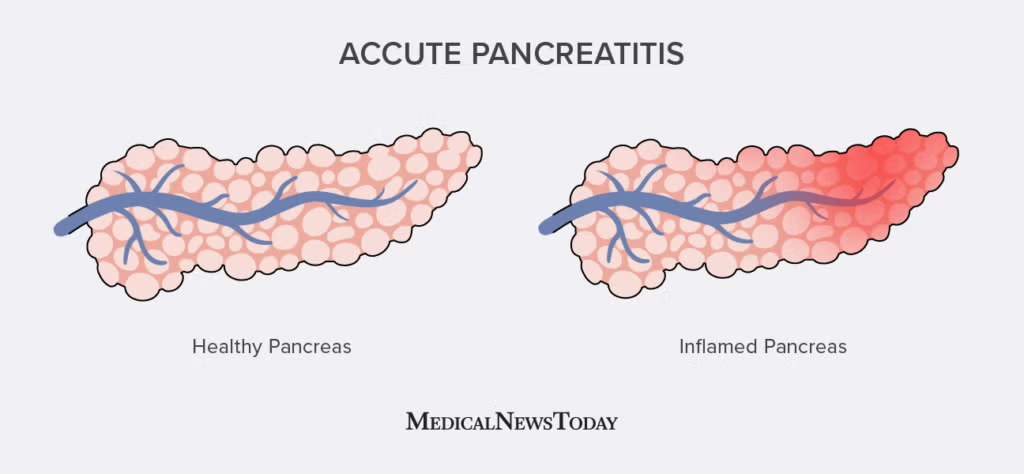Processed Meat: New Study Says No Safe Amount
New research is sending a stark warning to consumers about the dietary habits that increase the risk of major chronic diseases. According to leading nutrition experts, there is strong and consistent evidence suggesting that there is “no safe amount” of processed meat to consume.
This powerful conclusion stems from a comprehensive new study that meticulously examines the intricate connection between diet and the risk of severe health conditions, including various forms of cancer, type 2 diabetes, and ischemic heart disease. Beyond processed meats, the researchers also pinpointed significantly elevated health risks associated with the habitual consumption of sugar-sweetened beverages (SSBs) and trans fatty acids (TFAs). These findings collectively underscore the critical importance of dietary choices in long-term health outcomes.
The groundbreaking study, published on Monday in the prestigious journal Nature Medicine, involved a rigorous analysis of data extracted from more than 60 previous, independent studies. This extensive meta-analysis focused specifically on the relationship between the dietary intake of processed meats, sugar-sweetened beverages, and trans fatty acids, and their corresponding risk of developing type 2 diabetes, colorectal cancer, and ischemic heart disease.
Ischemic heart disease is a particularly serious condition characterized by a reduction in blood supply to the heart muscle, which, in turn, critically diminishes the delivery of essential oxygen and nutrients to this vital organ. The sheer volume and breadth of the analyzed data lend substantial weight to the study’s conclusions, reinforcing prior research in this critical area of nutritional science.
Dr. Demewoz Haile, a research scientist at the Institute for Health Metrics and Evaluation in Seattle and the lead author of the study, summarized the findings with directness: “Habitual consumption of even small amounts of processed meat, sugary drinks, and trans fatty acids is linked to increased risk of developing type 2 diabetes, ischemic heart disease and colorectal cancer.” This statement emphasizes that the detrimental effects are not confined to excessive consumption but can manifest even with seemingly modest daily intake, challenging conventional notions of moderation for these specific food categories.
Quantifying the Risks: Even Small Amounts Matter
The data presented in the Nature Medicine study provides specific and compelling figures that highlight the risks associated with even seemingly small amounts of these unhealthy dietary components. For processed meats, the findings were particularly striking: individuals who consumed as little as the equivalent of one hot dog per day demonstrated a statistically significant 11% greater risk of developing type 2 diabetes compared to those who completely abstained from processed meats.
Furthermore, the same level of processed meat consumption was associated with a 7% increased risk of colorectal cancer. These figures, while appearing modest at first glance, represent a substantial increase in population-level risk over time.
The study also quantified the risks associated with sugary drinks. Drinking the equivalent of approximately one 12-ounce soda per day was linked to an 8% increase in type 2 diabetes risk. Additionally, this daily consumption of sugar-sweetened beverages was associated with a 2% increased risk of ischemic heart disease. These numbers underscore that popular beverages, often consumed casually, contribute measurably to chronic disease burden.
Dr. Nita Forouhi, Head of Nutritional Epidemiology at the University of Cambridge in the United Kingdom, who was not involved in this specific research but is a leading expert in the field, affirmed the study’s conclusions. “This current research has shown, yet again and consistent with prior research… that to achieve health gains it is best to avoid or minimize the habitual consumption of each of processed meat, sugar-sweetened beverages (SSBs) and industrially produced trans fatty acids (TFAs),” she stated. Her endorsement lends further credibility to the study’s findings, highlighting a consistent message across nutritional science. In her email correspondence, Dr. Forouhi further emphasized a critical point:
“The risk increased as consumption increased; and for processed meat consumption, the data showed that there is no ‘safe amount.'” This reiterates the unprecedented finding that for processed meats, even the lowest levels of intake are associated with elevated risk, implying a linear relationship where any consumption contributes to potential harm.
Deeper Look at the Association: Why It’s Stronger Than It Appears
At first glance, an 11% or 7% increase in risk might seem modest to the average person, potentially leading to the perception that the association between these foods and diseases is weak. However, experts in epidemiology emphasize that such a perspective can be misleading. Dr. Mingyang Song, Associate Professor of Clinical Epidemiology and Nutrition at the Harvard T.H. Chan School of Public Health, who was not involved in this study, provided crucial context.
“When we look at the actual data there, it’s really remarkably consistent and remarkably strong,” Dr. Song explained, emphasizing the robust nature of the findings across multiple studies. He added, “and even in the lower dose of consumption, we can still see an increased risk of disease.” This consistency across diverse populations and study designs significantly strengthens the evidence, moving it beyond mere correlation. The fact that the risk manifests even at minimal consumption levels for processed meat is a particularly significant finding, challenging the idea that “a little bit won’t hurt.”
The researchers in this Nature Medicine study employed a sophisticated analytical technique known as a burden-of-proof method. This is a newer form of meta-analysis, going beyond simply quantifying an association across multiple studies. As Dr. Song clarified, this method also meticulously accounts for the quality of each individual study included in the analysis. This critical step helps to mitigate the impact of less rigorous studies and lends greater confidence to the overall conclusions.
While acknowledging its strengths, Dr. Song also offered a caveat: “One caveat is it tends to give very conservative results.” This implies that if anything, the reported associations might even be stronger than the figures presented, as the methodology is designed to err on the side of caution.
It is also crucial to acknowledge certain limitations inherent in nutritional epidemiology, particularly for observational studies. The studies included in this meta-analysis were observational, meaning they can only demonstrate an association between eating habits and disease risk. They cannot definitively prove that what people ate caused the disease. This is a standard limitation in this field, as conducting randomized controlled trials for long-term dietary patterns and disease outcomes is often impractical or unethical.
Furthermore, these studies often relied on participants recalling their dietary patterns, which, as Dr. Gunter Kuhnle, Professor of Nutrition and Food Science at the University of Reading in the United Kingdom (also not involved in the study), pointed out, “can leave room for misremembering or misreporting.” Human memory is fallible, and individuals may inadvertently or intentionally misreport their food intake.
Dr. Kuhnle underscored a broader challenge in the field: “Utilizing even ‘the most sophisticated techniques does not really solve the problem that the information about diet is rather limited – which is obviously a big problem in nutritional epidemiology in general.'” Despite these methodological challenges, the consistent findings across numerous studies, amplified by the rigorous burden-of-proof meta-analysis, provide compelling evidence for the health risks associated with processed meats, sugary drinks, and trans fatty acids.
The Biological Mechanisms: Why These Foods Harm Health
Understanding the biological mechanisms behind these associations provides further insight into why processed meats, sugar-sweetened beverages, and trans fatty acids are consistently linked to adverse health outcomes.
Processed Meats and Inflammation:
According to Dr. Song, both sugar-sweetened beverages and processed meat – a broad category that includes popular items like sausages, bacon, salami, and many types of burgers – have a significant impact on the body’s inflammatory response. They “can increase inflammation,” which is a crucial factor. Chronic inflammation plays a foundational role in the development and progression of a wide variety of chronic diseases, ranging from cardiovascular conditions to certain cancers and metabolic disorders. When the body is in a state of prolonged, low-grade inflammation, cellular damage can accumulate, contributing to disease pathology.
Beyond general inflammation, Dr. Kuhnle highlighted a specific concern with processed meats: they are “often cured with nitrite.” While nitrites are used to preserve meat and prevent bacterial growth, they can be converted into carcinogenic nitrosamines in the stomach once ingested. Nitrosamines are known potent carcinogens that have been linked to an increased risk of various cancers, including colorectal cancer, which was a focus of the study. This chemical transformation process offers a direct biological pathway linking processed meat consumption to cancer risk.
Sugary Drinks and Metabolic Pathways:
The problem with sugary drinks, as Dr. Kuhnle explained, is that they represent “a quick way to consume large amounts of sugar.” This rapid intake of large quantities of sugar can lead to several adverse health consequences. Not only can it contribute directly to weight gain due to excess calorie intake and altered satiety signals, but it also profoundly “influences metabolic pathways that affect heart disease and diabetes risk.”
High sugar intake can lead to insulin resistance, increased liver fat, and dyslipidemia (unhealthy cholesterol levels), all of which are key drivers of type 2 diabetes and cardiovascular disease. The lack of fiber and other nutrients in SSBs means that the sugar is absorbed very quickly, causing sharp spikes in blood glucose and insulin, which over time, can stress the body’s metabolic systems.
Trans Fatty Acids and Cholesterol:
Trans fatty acids (TFAs), particularly industrially produced ones, are widely recognized as particularly harmful to cardiovascular health. Dr. Kuhnle explained their detrimental effect: TFAs “reduce levels of good cholesterol (high-density lipoprotein or HDL) and increase the bad (low-density lipoprotein or LDL).” This unfavorable shift in cholesterol profiles is a known and significant factor in increasing the risk of plaque buildup in arteries (atherosclerosis), which is the underlying cause of heart disease, including ischemic heart disease.
TFAs contribute to inflammation and endothelial dysfunction, further exacerbating the risk of cardiovascular events. While many countries have now banned or severely restricted industrially produced trans fats, they can still be found in some processed foods, highlighting the importance of checking food labels.
Interconnected Lifestyle and Social Factors:
It’s also important to acknowledge that dietary patterns rarely exist in isolation. As Dr. Kuhnle pointed out, people who are more likely to consume processed meats, sugar-sweetened beverages, and trans-fats are often also at a higher overall risk of various diseases due to a complex interplay of other factors. These include:
- Lifestyle factors: Such as smoking and lack of physical exercise.
- Social factors: Including levels of education and income, which can influence access to healthy food options and health knowledge.
- Chronic stress: Which can lead to unhealthy coping mechanisms, including poor dietary choices.
- Limited access to health care: Which can delay diagnoses and effective management of chronic conditions.
Dr. Kuhnle concluded that “It is very difficult to take these apart.” While epidemiological studies strive to control for these confounding variables, the inherent interconnectedness of lifestyle, socioeconomic, and environmental factors means that dietary patterns are part of a broader health mosaic. Nevertheless, the consistent association found in numerous studies, even after statistical adjustments for these factors, underscores the independent contribution of these specific foods and drinks to disease risk.
Practical Advice: What to Avoid and What to Add to Your Diet
While observational studies cannot definitively prove causation, the overwhelming and consistent evidence from this new meta-analysis, combined with prior research, strongly suggests that reducing consumption of processed meats, sugar-sweetened beverages, and trans fatty acids is a prudent health strategy. As Dr. Song noted, while the data cannot definitively say that reducing consumption will cause a lower risk, it does very strongly suggest that a reduction is indeed a good idea.
Dr. Gunter Kuhnle advocates for a sensible and balanced approach, emphasizing that a healthy diet “should follow a varied and balanced diet that avoids excess.” This pragmatic advice means:
- Cut back on sugary drinks: For individuals who consume large quantities of SSBs, making a conscious effort to cut back is a clear starting point. Replacing them with water, unsweetened tea, or naturally flavored sparkling water can significantly reduce sugar intake.
- Avoid excess processed meats: While the study suggests “no safe amount” for processed meat, a practical approach for many is to minimize consumption as much as possible. Reducing frequency and portion sizes, and opting for fresh, unprocessed protein sources, are actionable steps.
- Avoid hydrogenated fats: Where possible, people should actively avoid industrially produced trans fatty acids. While they are “no longer as common as they used to be” due to regulatory changes in many regions, checking food labels for “partially hydrogenated oils” is still important.
Dr. Kuhnle also reminds us that “The goal shouldn’t be perfection but rather a healthy and sensible dietary pattern that allows room for enjoyment.” This acknowledges the psychological and social role of food and encourages sustainable, rather than overly restrictive, dietary changes.
A good diet is not just about what to avoid; it’s equally about what to add to your diet to ensure adequate nutrient intake and promote overall well-being. Dr. Nita Forouhi emphasized this positive aspect, stating: “Wider research has shown us that overall dietary patterns that include higher consumption of fruit and vegetables, whole grains, legumes, nuts and fermented dairy products like yogurt are good for health and longevity.” This highlights the benefits of a diet rich in plant-based foods, healthy fats, and probiotics, which collectively contribute to reduced inflammation, improved gut health, and better metabolic function.
Finally, Dr. Kuhnle offered a reassuring, yet impactful, piece of advice: “don’t panic.” He underscored that “Food is not just (a) source of nutrients – it plays a central role in culture, pleasure, family life, and social connection. Reducing it solely to a list of health risks misses the bigger picture.”
While the scientific evidence regarding the risks of certain foods is crucial, it’s equally important to approach dietary changes with a balanced perspective, integrating health goals with the joy and cultural significance that food brings to our lives. The key takeaway is informed moderation and a shift towards a diet rich in whole, unprocessed foods.






